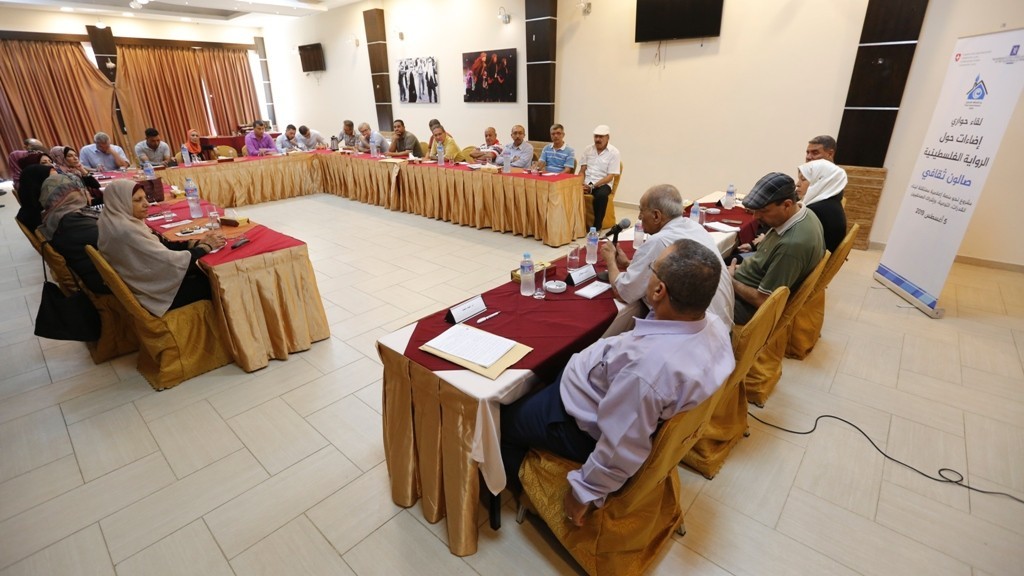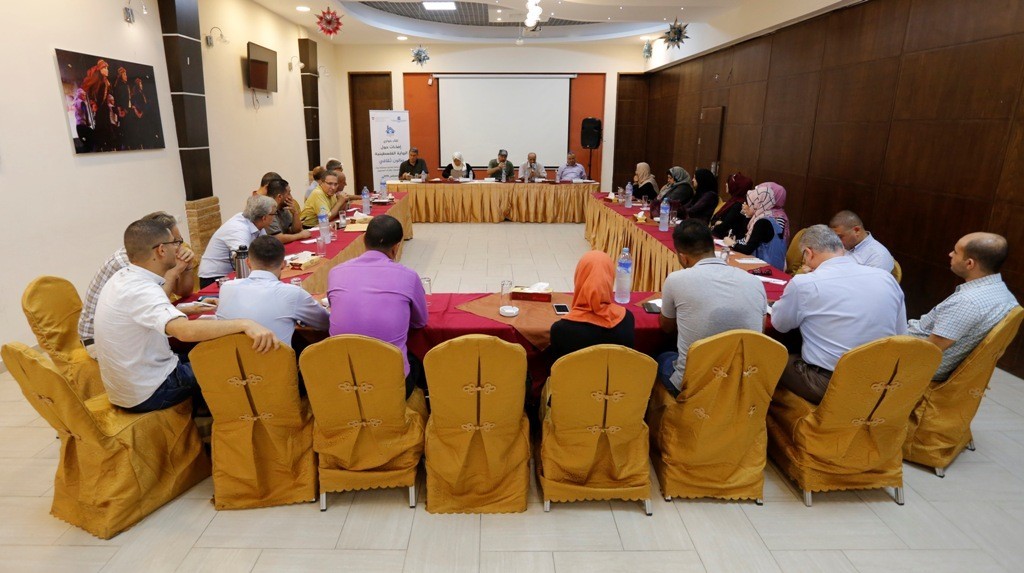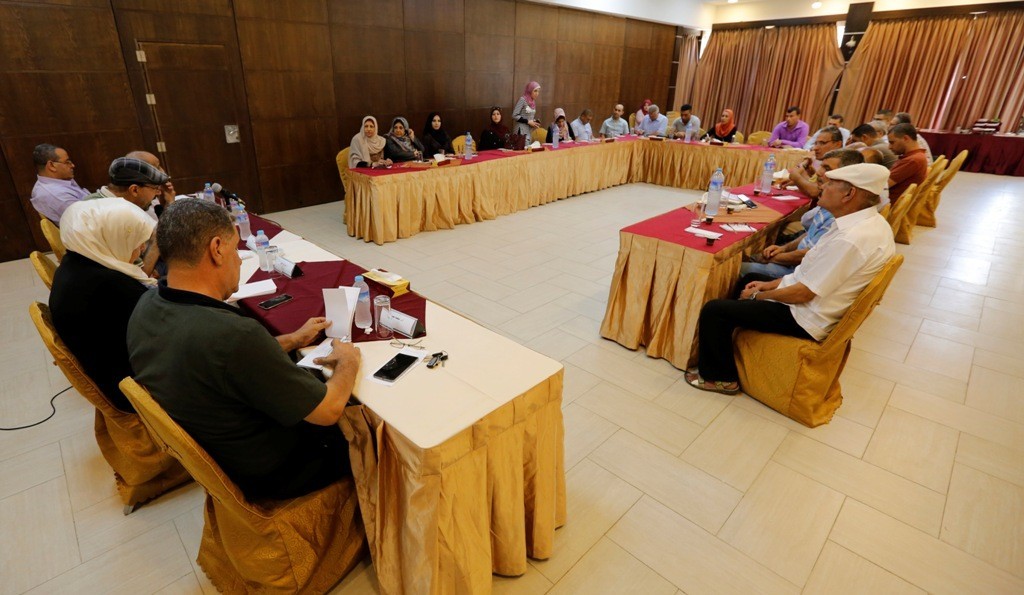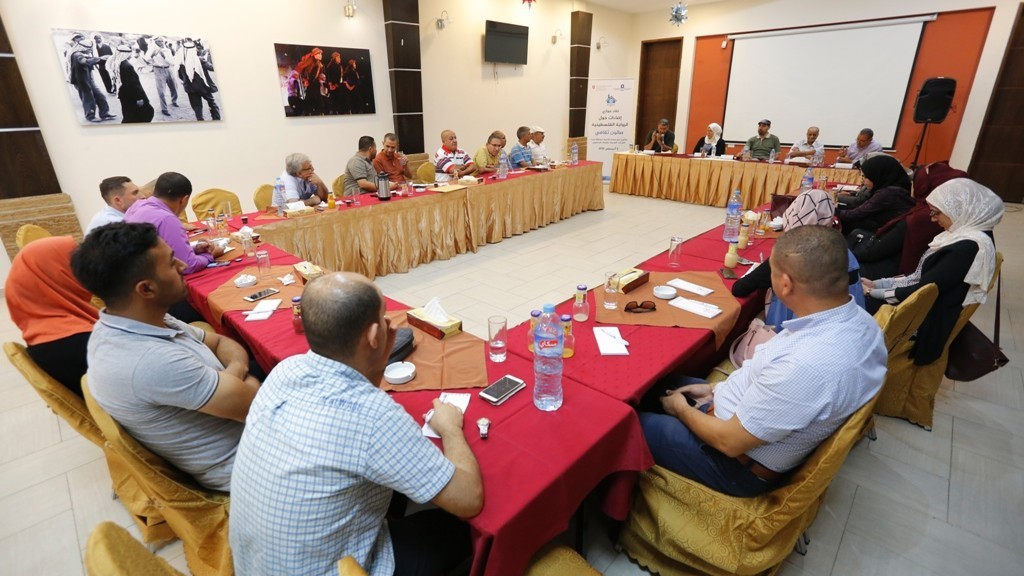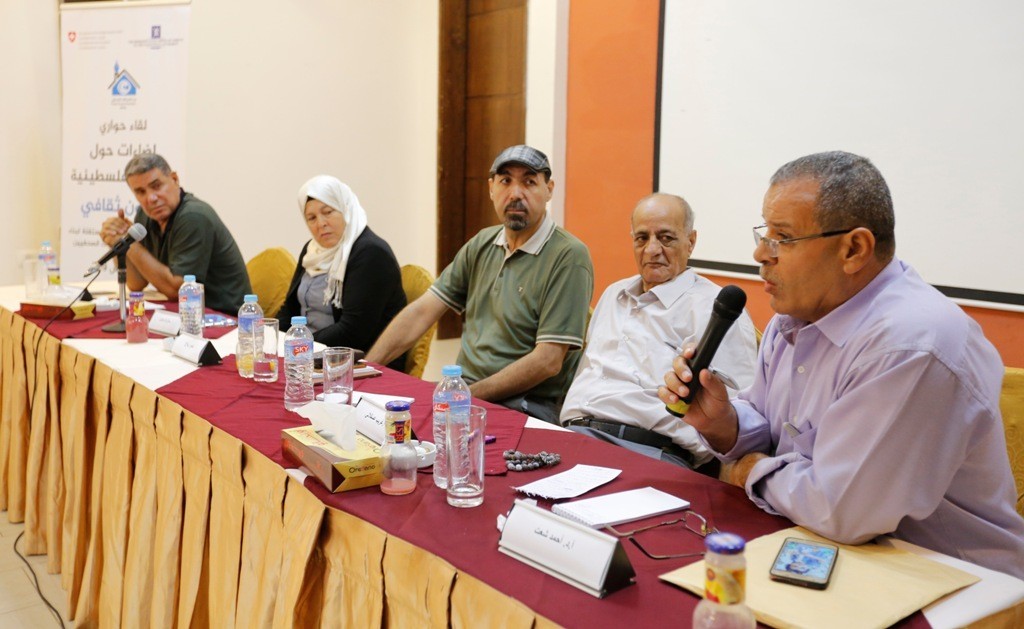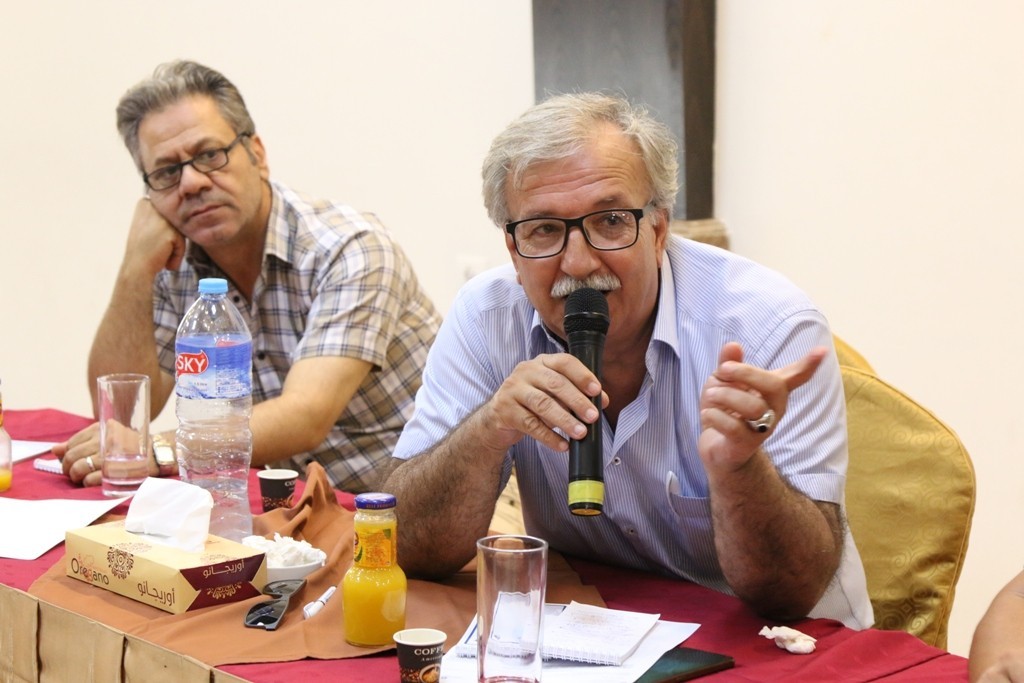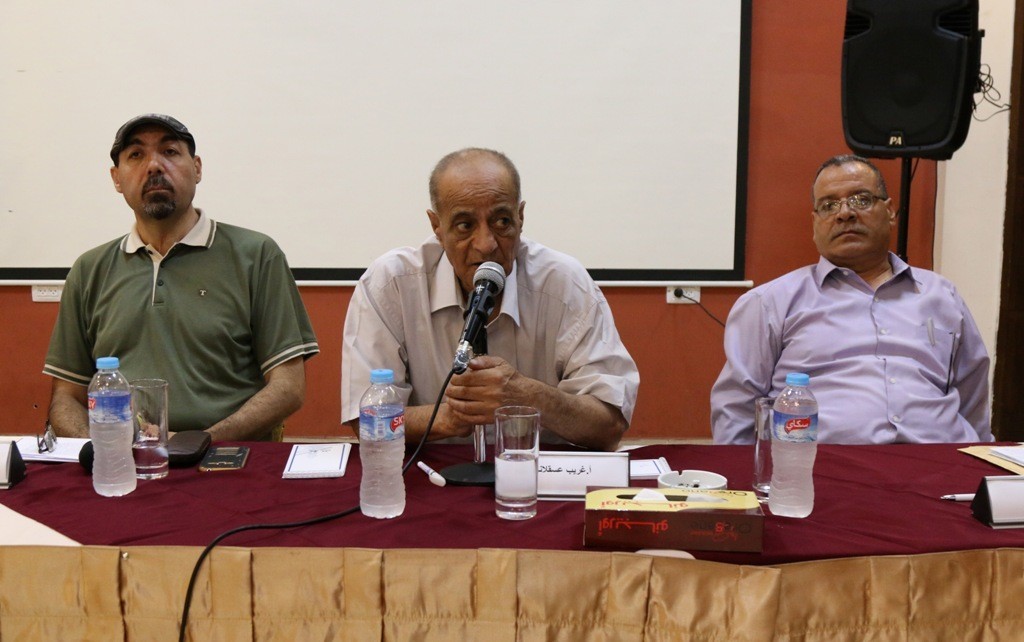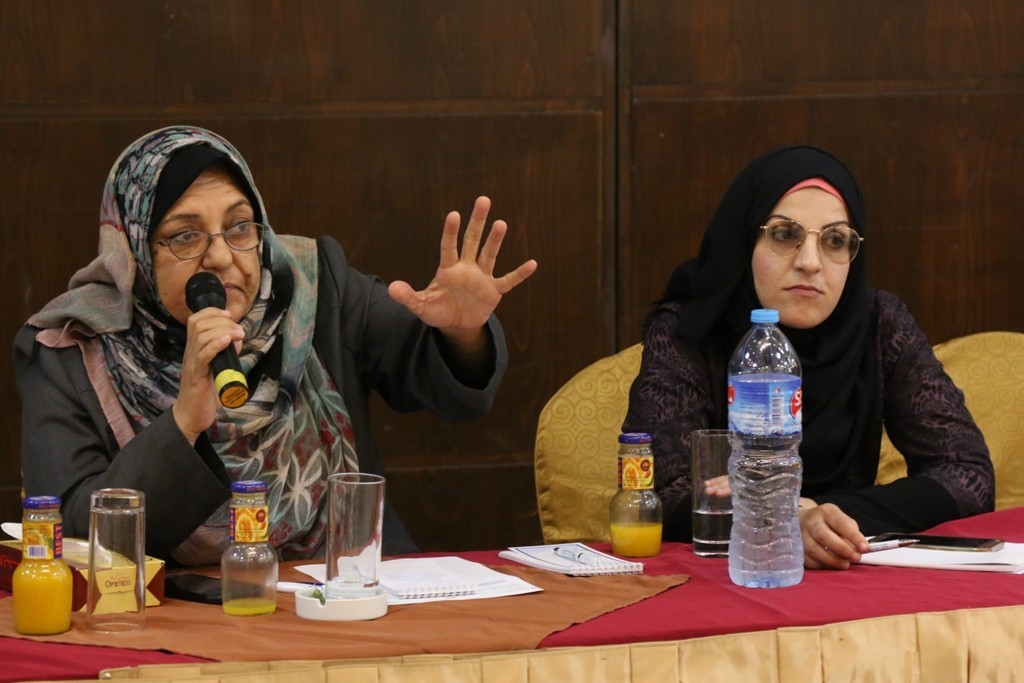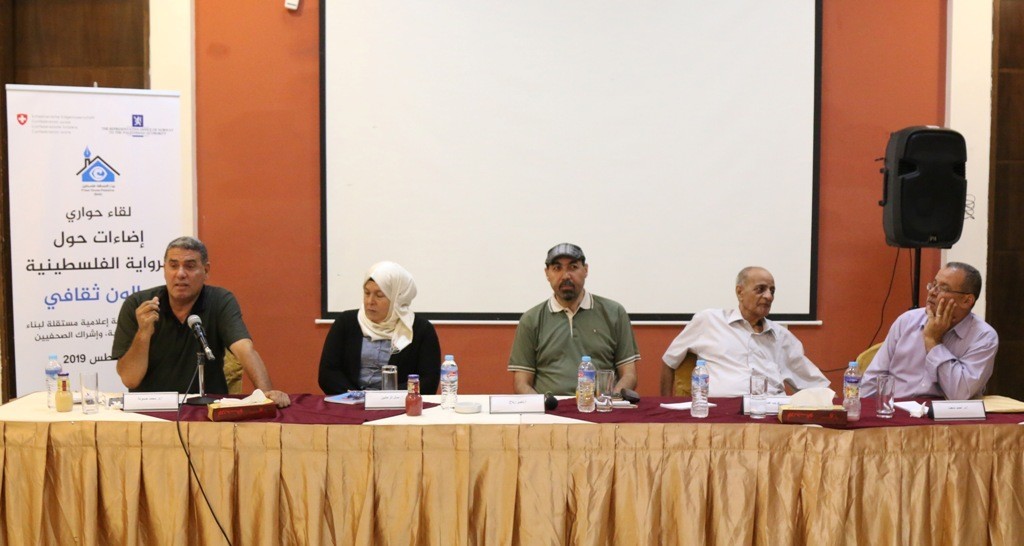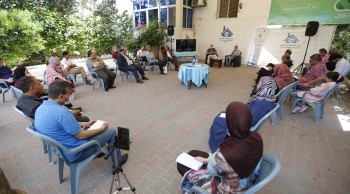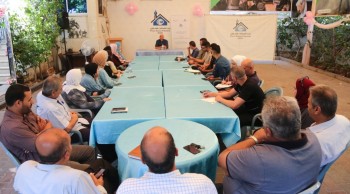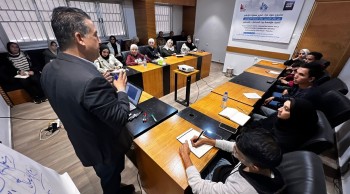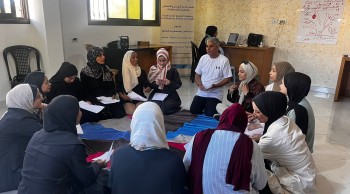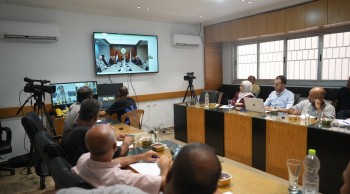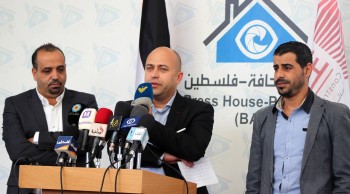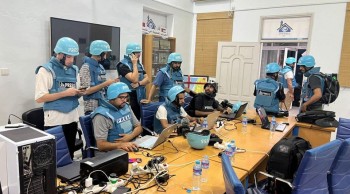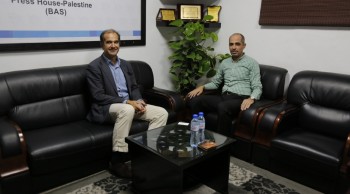On Monday, 5th of August 2019, the Cultural Club of the Press House organized a dialogue meeting on the Palestinian novel and its history, with the presence of an elite of writers, intellectuals and interested persons of cultural issue besides a number of male and female journalists.
The meeting was opened with the writer Nasser Rabah, who welcomed the participants, referring to the Palestinian novel as the “Lady of the Earth”, he also touched upon the modern Palestinian novel and its emergence, in addition to the creative writing arts included to the context of the Palestinian novel.
From his part, the writer Ghareen Asqlani spoke about the historic panorama of the Palestinian novel journey after Al-Nakbih, which reflects the conditions of the communities.
Asqlani also talked about the “Hejaz Railway”, which discusses the crisis of the Arab World, he referred that the beginning of the story was in Lebanon, which described Egypt as “The Literature of the Journal”.
He also reviewed "Al-Manfaloti" and "Al- Rafee" translations during his talk on the Palestinian Nakbih, mentioning the Palestinian refugee and his adapt with asylum tragedy.
Asqlani mentioned writings belonged to writers inside the lands of the Arab of 48, explaining that the novelist discourse is addressed to the homeland, pointing out the emblematic of literature belongs to the Palestinian cause. He added wondering:” why there’s no rebellion against diaspora?”.
from her part, Manal Zaneen talked about the Palestinian women as the center of the issue, noting that the writer is the one who controls the image of the freedom of heroes in the novel.
Manal pointed out to the Palestinian women who emerged at the stories as the mother, wife and the perpetual foster of the martyr, and her resistance against the daily suffer, she said that the Palestinian women are still preserved their stereotyped at the Palestinian novel ,which brought to light the liberation issue.
On his part, the teacher of the Literature and Modern Criticism at Al-Aqsa University, Ahmed Shaath, spoke about the study of the thresholds “ The Parallel Text”, he referred to any novel as a work stems from the language, saying:” It’s not true that the Nakbih creates the writers and novelists but the power of the determination”.
Shaath explained that the study of thresholds begins with the subtitle and he talked about the techniques of narration and its basic elements, and the types of novelists, pointing out that the novelist is made of paper and language.
He also touched upon the novels of “Zainab” and “ Khalil Beidas”, referring to the novelist as the one who controls the narration through providing an interesting tale by controlling the beginning and the ending of the novel.
He clarified that the technique should be used at the narrative work is the time technique through using time paradox.
Mohammed Hassonah, the teacher of the Literature and Rhetoric at Al-Aqsa University, talked about the” Religion Restrictions and Narrative Fiction”, pointing out the importance of the novelist having an instinct knowledge on the receiver's culture
The meeting included a number of interventions by the participants on the problems of the Palestinian novel in Gaza, among an effective participation between the audience of the writers and intellectuals.
